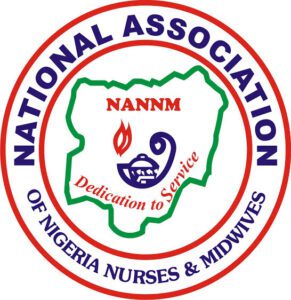
Lagos commemorates World TB day with awareness walk, stakeholders engagement
In a concerted effort to tackle the ongoing challenge of tuberculosis (TB) in Lagos State, the Ministry of Health organised an Awareness Walk and Stakeholders Engagement to commemorate Y2024 World Tuberculosis Day.
The awareness walk held around the Secretariat, Alausa-Ikeja community, and the Stakeholders’ Engagement and Briefing held at the Folarin Coker Staff Clinic Auditorium, Alausa was attended by stakeholders from various sectors, including healthcare professionals, international funders, and implementing partners.
Speaking at the event, the Commissioner for Health in Lagos State, Prof. Akin Abayomi emphasised the urgent need to tackle tuberculosis (TB) head-on. He highlighted the profound impact of TB on global public health, stressing its enduring presence as a significant challenge affecting millions worldwide.
Prof. Abayomi, who was represented by the Senior Special Assistant to the Lagos State Governor on Health, Dr. Oluwatoni Adeyemi, noted that despite advancements, TB remains a formidable foe, causing immense suffering and loss.
With a clear message of hope and determination, Prof. Abayomi underscored the theme of the event, “Yes, we can end TB,” emphasising the collective responsibility to work towards a TB-free world. He commended the efforts of the State’s TB and Leprosy Control Programme, which successfully treated 18,546 TB patients in 2023.
While acknowledging the State’s steadfast commitment to combating TB, the Commissioner attributed progress recorded so far to strategic partnerships, innovative programmes, and relentless advocacy efforts. However, he cautioned against complacency, emphasising the ongoing need for vigilance and action.
Prof. Abayomi called upon all stakeholders, including government agencies, healthcare professionals, civil society organisations, the private sector, and the general public, to join forces in the fight against TB. He urged increased awareness, improved access to healthcare services, and support for research initiatives aimed at prevention and control.
Expressing gratitude to those dedicated to the TB cause, Prof. Abayomi rallied support for decisive actions to end TB once and for all. He concluded with a call for unwavering resolve and optimism, urging belief in the power of collective action to effect positive change.
Earlier, the Permanent Secretary, Lagos State Ministry of Health, Dr. Olusegun Ogboye stated the significance of World TB day, noting that the day serves as an opportunity to raise awareness about TB, celebrate survivors, and remember those who have lost their lives to the disease.
Dr. Ogboye, who was represented by the Director, Disease Control in the Ministry of Health, highlighted the continued threat posed by TB, citing statistics that reveal Nigeria’s alarming rate of TB-related deaths. He emphasised the urgent need for collaborative efforts to address the disease effectively, especially considering Lagos State’s significant contribution to the national burden of TB.
Despite the government’s commitment to combating TB, Dr. Ogboye stressed the importance of external support from international funders and implementing partners. He expressed gratitude to these entities for their ongoing assistance in the fight against TB, recognising their vital role in providing financial resources and technical expertise.
Speaking in the same vein, the State Coordinator, World Health Organization (WHO) Lagos Office, Dr. Chinenye Okafor emphasised the urgent need for collective action to combat the persistent threat of tuberculosis (TB) in Lagos and beyond.
While commending the Lagos State government for its commitment to TB awareness and control efforts, Dr. Okafor stressed the severity of the TB crisis, citing alarming statistics from the African region, where one person is infected with TB every 30 seconds, resulting in 444 deaths per day in 2022 alone.
“These figures underscored the critical importance of sustained efforts to combat the disease,” she said.
Dr. Okafor reaffirmed WHO’s support for Lagos State’s TB control initiatives, highlighting the organisation’s Country Cooperation Strategy, which prioritises research and intervention to address TB effectively. With approximately 100 WHO-paid officers currently working in Lagos State, Dr. Okafor assured continued collaboration to strengthen TB prevention, diagnosis, and treatment efforts.
Drawing attention to the vulnerability of children to TB, Dr. Okafor emphasised the need for targeted interventions. She reported a notable increase in pediatric TB detection, signaling the importance of prioritising this demographic in TB control strategies. Dr. Okafor also stressed that protecting children from TB is essential for securing the future health of communities.
In recognition of Lagos State’s leadership in TB control, Dr. Okafor praised the government’s efforts and lauded Lagos as a trailblazer in achieving the Sustainable Development Goals. She expressed gratitude to all stakeholders for their commitment to the TB cause and urged continued dedication to ending the TB epidemic.



